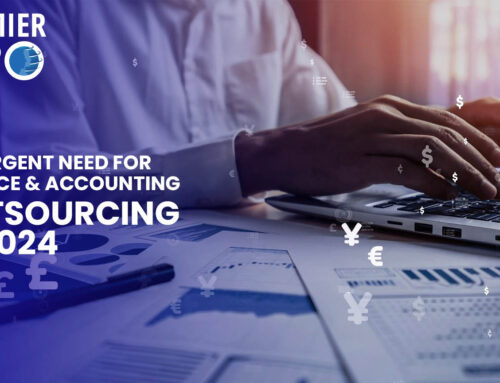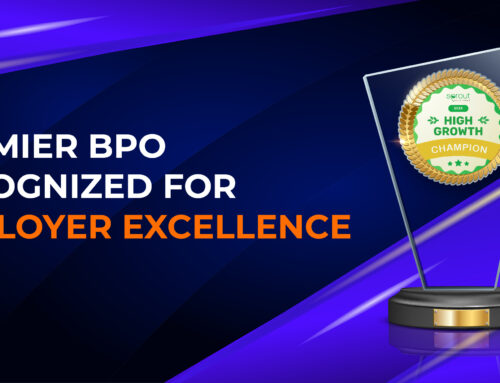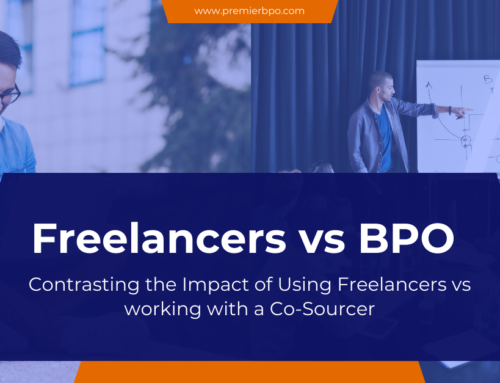Comprehending your client’s needs and tailoring your service to them is the mark of a true business partnership. Just like a well-oiled machine, a successfully run business requires certain expert departments to handle various everyday functions. Similar is the relationship between a partner and business; both must work in unison and like clockwork for both to thrive. Vendors provide purely transactional services with no proactive idea generation, in-depth understanding of the business, or investment in the future of the company; as opposed to a partner. Partners also immerse themselves into your corporate culture to understand inner workings for long-term growth. Since one size does not fit all, it is imperative to know what each, partner and vendor, bring to the table.
“Alone we can do so little; together we can do so much.” — Helen Keller

Organizations often have specialized functions in each department (IT, HR, Accounts, etc.) either staffed internally or outsourced, depending on the level of expertise needed. Since in-house resources are expensive to hire, outsourcing to partners becomes the most cost-effective option. It is important to differentiate between vendor vs partner to understand what is best suited to any particular type of business.
What is Vendor Relationship?
Vendor relationships are based on transactional exchanges and they may also act as a supplier; meaning they deliver services or products based upon some agreed-upon terms. As boundaries are clearly defined and based on limited communication, there is no form of investment from a vendor or any additional value to the business organization. Vendors are best suited to supply chain roles for standardization of procedures or goods/services exchange for fixed periods, based on certain terms and conditions.
What is a Partnership in Business?
A partnership business, on the other hand, offers value-added components as there is shared risk and reward, and every solution is customized to business requirements. They also embed within the solution, your company culture and values. Partnerships involve mutual investments, aligned goals, building trust, and achieving long-term outcomes. If you need someone to give strategic advice and go through all challenges with you; then partnerships based on Co-Sourcing or Right-Shoring are better suited to your business model. In today’s rapidly changing business environment, partnerships are the trend and emphasize delivering exceptional results and CX to your customer base.
Vendor vs Partner
There are some striking differences between partner and vendor, despite that some organizations may merge both in the form of an outsourced partner company. The major elements that separate them are time invested, personalization, goals, value, effort, trust and transparency, expertise, and commitment.
Below is a given table comparing the characteristics and benefits of vendors vs. partners for a better understanding:
| Partner | Vendor |
|---|---|
| Growth: Mutually shared success and failure based upon risk and reward models. A partner may agree or disagree with the design strategy based on what is beneficial for the business rather than them personally. They also engage in idea generation for the benefit of the organization. Proactive approach; prepared to eliminate problems before they even occur. | Growth: No growth elements are included as SLAs are predefined. A vendor also is not involved in design strategy or business outcomes. They also do not contribute any ideas to improve or benefit the organization. Reactive approach; only resolve issue as a response after occurrence. |
| Model: Strategic, flexible, and win-win approach as both firms are committed to each other’s success | Model: Transaction-based, focus is product or service delivery |
| Cost: May change over time as the relationship and subsequent services/products expand | Cost: Agreed-upon and fixed for a type of service |
| Strategy: Act as an extension of your business, sharing culture and values along with goals. Proactively engage in business development and investment for future | Strategy: No particular strategy exists; the aim is to deliver as per expected standards. Vendors do not have any say in inner workings or future decision-making |
| Scalability: Can scale up or down as per requirement and on short notice | Scalability: May or may not have room to scale depending on time constraints |
| Transparency: Build on trust, industry experience, and credibility. Focus is on a long-lasting relationship | Transparency: Usually short-term or contract-based service, until requirement changes |
| Personalization: Hands-on approach with solutions custom-designed to suit the business. Partners understand the business inside out and suggest process improvements where applicable | Personalization: Usually a standardized service with certain elements flexible to suit the client. Vendors are not involved in business processes within the company |
| Suited: For flexible, complex, changeable services, costs, and deliverables | Suited: For clear deliverables, simple standard procedures, and fixed amounts |
| Subject Matter Expertise: Partners provide the necessary field-relevant expertise to perform any function precisely and while applying best practices. They also provide consultancy on any organizational change that may affect the relationship or business. | Subject Matter Expertise: Vendors possess limited expertise that cannot be expanded beyond the requested service boundaries. They have no contribution or consultative role if an organization wishes to bring change in its product, service, or departmental roles etc. |
What makes a Good Partnership
A true business partnership provides you with a competitive advantage in the market, highlighting and enhancing your best features while streamlining all existing operations for maximum efficacy and accuracy. This also means the integration of the latest technology and tools, including adapting to best practices like Lean Six Sigma, incorporating AI for automation, utilizing Business Intelligence for insights, etc.
All these traits can be found in an outsourcing partner like Premier BPO, which not only helps to reduce internal expenses but offers time-tested experience alongside. Partners have a deeper involvement in your business interests and spend the time and energy to identify new opportunities while walking through every milestone with you. Choosing vendor vs partner all comes down to the type of liaison you want to establish. For someone who is there to share in your successes and failures and guide you to make informed business decisions; a partner is the right choice.
 Skip to content
Skip to content





